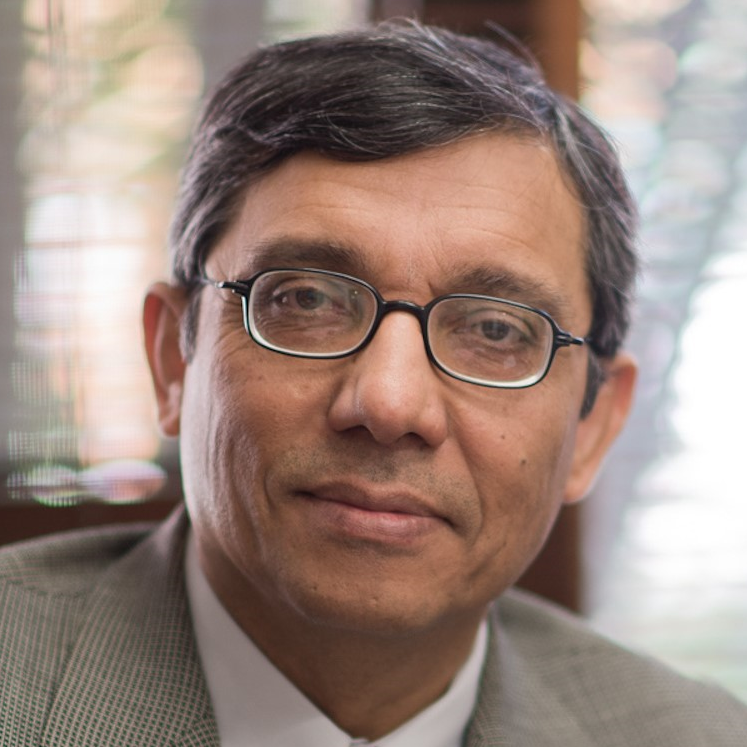Columns
The secret of Pakistan’s Covid-19 success
The rapid-response team of Pakistan’s polio prevention infrastructure dealt with Covid-19.
Zulfiqar A Bhutta
When the novel coronavirus first arrived in Pakistan in late February, there was widespread concern about the country’s ability to manage the increased disease burden. Covid-19 cases were rising quickly as people returned home from other regional hotspots, and the public-health system urgently needed to be reinforced.
In this moment of crisis, Pakistan turned to the team working to eradicate polio. Pakistan and neighbouring Afghanistan are now the only two countries in the world where wild poliovirus remains endemic, after Africa was recently declared free of the disease. The Pakistani government works closely with the Global Polio Eradication Initiative—a partnership including Rotary International; the World Health Organisation; UNICEF; the US-based Centres for Disease Control and Prevention; Gavi, the Vaccine Alliance; and the Bill & Melinda Gates Foundation—to vaccinate children in every corner of the country and track the virus to its remaining redoubts.
Pakistan has made major progress in combating polio since I returned to the country to begin my academic and public-health career some 35 years ago. At that time, children paralysed by polio would wait at nearly every traffic intersection and beseech passersby for support. Today, it is extremely uncommon to find young people affected by polio—a testament to the eradication programme’s efficacy.
But this March, the Covid-19 pandemic forced the polio programme to suspend its vaccination campaigns in order to protect the health and safety of its workforce and local communities. The expertise and infrastructure that have been instrumental in combating polio pivoted quickly to stopping Covid-19, which has proved critical in Pakistan’s response. This underscores the importance of continued international investment in the polio programme—not only to stop polio, but also to address other health priorities. Renewed financial commitment now could provide just the catalyst the country needs.
Crucially, the polio programme is helping to monitor the spread of the coronavirus using some of the same methods and tools it employs to track poliovirus, including collecting and analysing sewage samples. To slow the rate of both Covid-19 and polio infections, the programme now tracks and tests for the two viruses in tandem. To date, more than 100 labs across Pakistan have been adapted to test for Covid-19 and collect data on when and where the coronavirus is infecting people.
Although Covid-19 itself can have potentially devastating consequences, misinformation about the virus can compound the threat by eroding public trust in the pandemic response. Having had years of practice in responding to similar rumours and falsehoods, the polio programme is now using social media platforms, especially WhatsApp, to disseminate Covid-19 prevention messages and engage trusted community influencers and religious leaders to provide people with accurate health information. Within the first few months of the pandemic, the programme reached nearly 25 million individuals through social media channels alone.
The polio programme has also been creative in its use of other platforms to furnish the public with reliable information. For example, the Sehat Tahaffuz 1166 health protection helpline in Islamabad was originally designed to give parents and caregivers information about polio and other vaccines, but now fields up to 70,000 calls per day since the Covid-19 pandemic began. The hotline provides advice about symptoms and preventive measures, as well as contact information for testing centres and connections to hospitals for medical support.
Despite significant challenges, Pakistan has succeeded in keeping rates of Covid-19 cases and deaths relatively low, thanks in part to the rapid deployment of polio prevention infrastructure. In early September, WHO Director-General Tedros Adhanom Ghebreyesus praised the country’s pandemic preparation and response, while the US economist Lawrence Summers recently touted Pakistan’s Covid-19 control programme as an exemplar.
Unfortunately, the suspension of polio vaccination campaigns from March through August has undoubtedly caused poliovirus to spread more widely throughout the country, in part prompting the WHO and UNICEF to launch an emergency call to action to help avert a potential epidemic. Campaigns have now resumed with added safety measures for vaccinators and families, while the programme remains committed to supporting the Covid-19 response. But these disruptions serve as a reminder of how quickly progress against polio and other diseases can be reversed.
By investing further in Pakistan’s polio programme, the world will enable the country to tackle both longstanding and emerging global health threats more effectively. The Covid-19 challenge clearly shows that such support has never been needed more.
—Project Syndicate




 9.7°C Kathmandu
9.7°C Kathmandu















